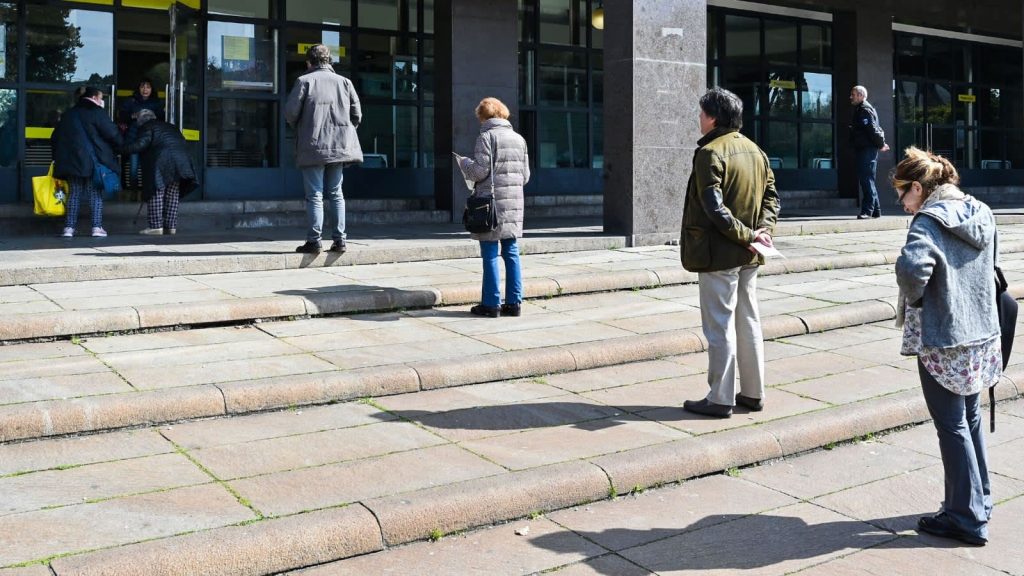With the outbreak of coronavirus came a number of safety measures recommended by the World Health Organisation (WHO). One of these was “social distancing”, a term which felt relatively new in the discussion of disease control.
It turns out, it’s not at all a new concept. According to The Cut, it’s a preventative technique that is often used before the medical community is able to produce an effective vaccine against the illness.
On January 30, 2020, the WHO noted that social distancing was an effective way of slowing the spread of COVID-19.
“Acknowledging that cases have been reported in five WHO regions in one month, the Committee noted that early detection, isolating and treating cases, contact tracing and social distancing measures – in line with the level of risk – can all work to interrupt virus spread,” the WHO said at the time.
The Australian Government Department of Health also includes the use of social distancing in its Management Plan for Pandemic Influenza — a document that outlines Australia’s strategy for coping with a pandemic like the one we’re currently experiencing. The use of social distancing in Australia has proved helpful in the past.
“Overall, social distancing measures were found to be moderately effective and many are likely to be acceptable in Australia as temporary measures, especially where the economic and social impacts are minimal,” the plan states.
Social distancing measures that were included in the government’s plan also include proactive and reactive school closures, workplace closures and working from home if able.
While it’s inevitable that the virus will continue to spread, social distancing could help delay it. According to Professor Guy Marks, who is a respiratory physician, epidemiologist and a public health physician, it’s important that we slow transmission.
“There is a risk that very many people may all be affected at once and this will overwhelm the health services (as in Wuhan and in Northern Italy),” Professor Marks told TheLatch—.
“It is the latter problem that we are trying to avoid by slowing the rate of spread in the community — so-called ‘flattening the curve’. If the cases are spread over a longer period of time, the health services will be in a better position to cope with the demand.”
How do you practice social distancing?
Senior health-policy researcher, Lori Uscher-Pines, told The Cut that there is no right or wrong way to implement social distancing. It all comes down to your concerns.
“If you are personally concerned about COVID-19, you should try to limit your contact and exposure to crowded places, and try to maintain a distance of three to six feet [from other people],” she told The Cut.
So, it’s completely up to you whether you want to avoid attending events where large amounts of people will be congregating or in high traffic areas like the gym.
According to Uscher-Pines, adhering to public health recommendations from the government is most important. For example, if a school is closed, don’t allow your children to still interact with their friends outside of school.
“A big concern with something like school closure is that school will be closed, but then kids will mix on their own outside of school, and that kind of defeats the purpose,” she told The Cut.
Due to the extreme speed in which coronavirus has spread, it’s best to err on the side of caution when it comes to social distancing. This can be hard when you’re still required to show up to work and you rely on public transport to get you there, but try to do your best — for both you and the community.
Keep in mind that not everyone has the financial means to take time off work to complete self-isolation (or has the option of working from home). Many people also don’t have the ability to bulk buy items that would be needed to last a two-week stint in isolation should they get sick.
Uscher-Pines also highlighted how hard self-isolation can be for people’s mental health. So, with all this in mind, practising social distancing means that you’ll be doing all you can do to prevent the transmission or further spread of coronavirus.
Oh, and as always, please wash your hands.
The current health crisis is evolving rapidly. If you suspect you or a family member has coronavirus you should call (not visit) your GP or ring the national Coronavirus Health Information Hotline on 1800 020 080.







